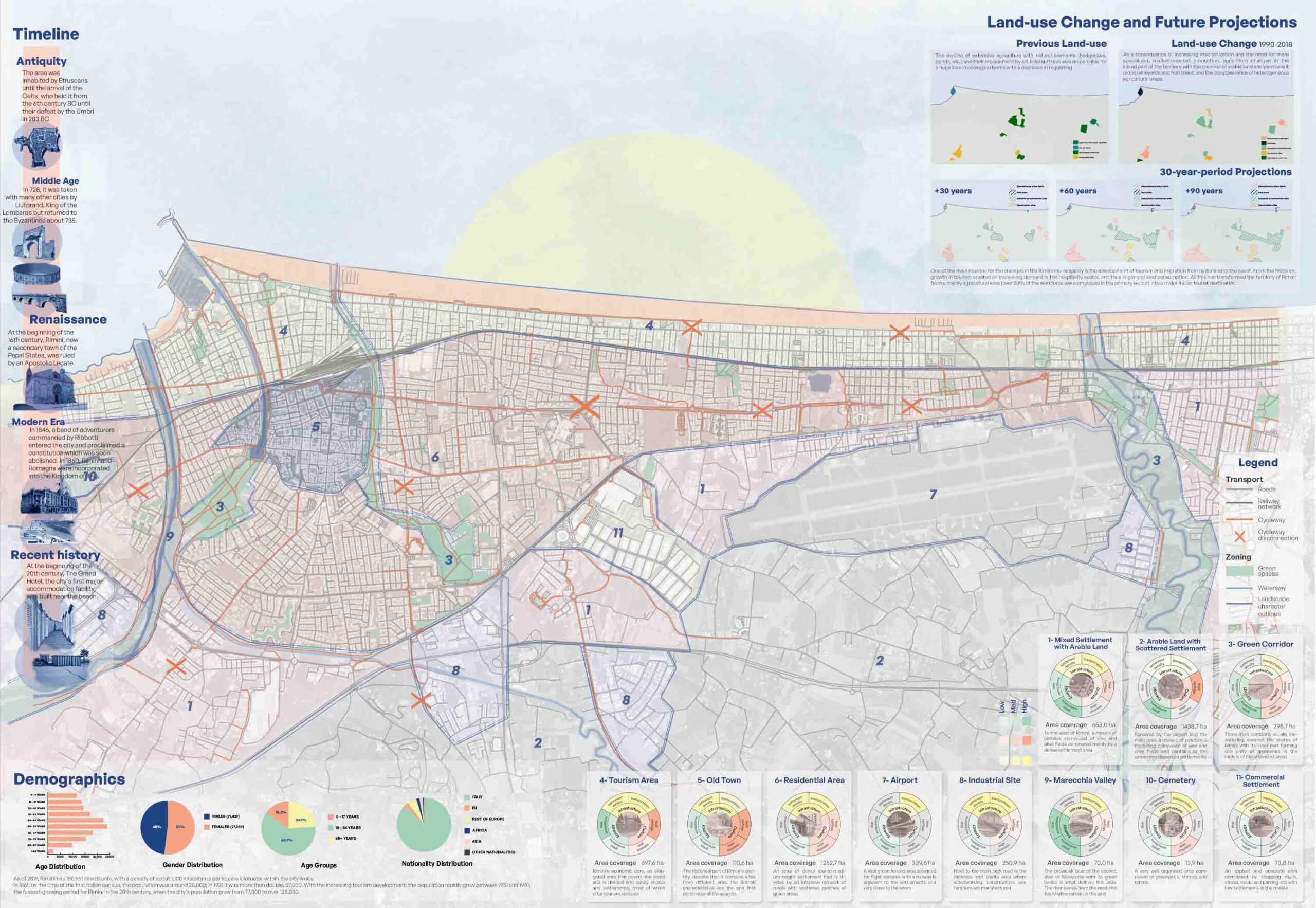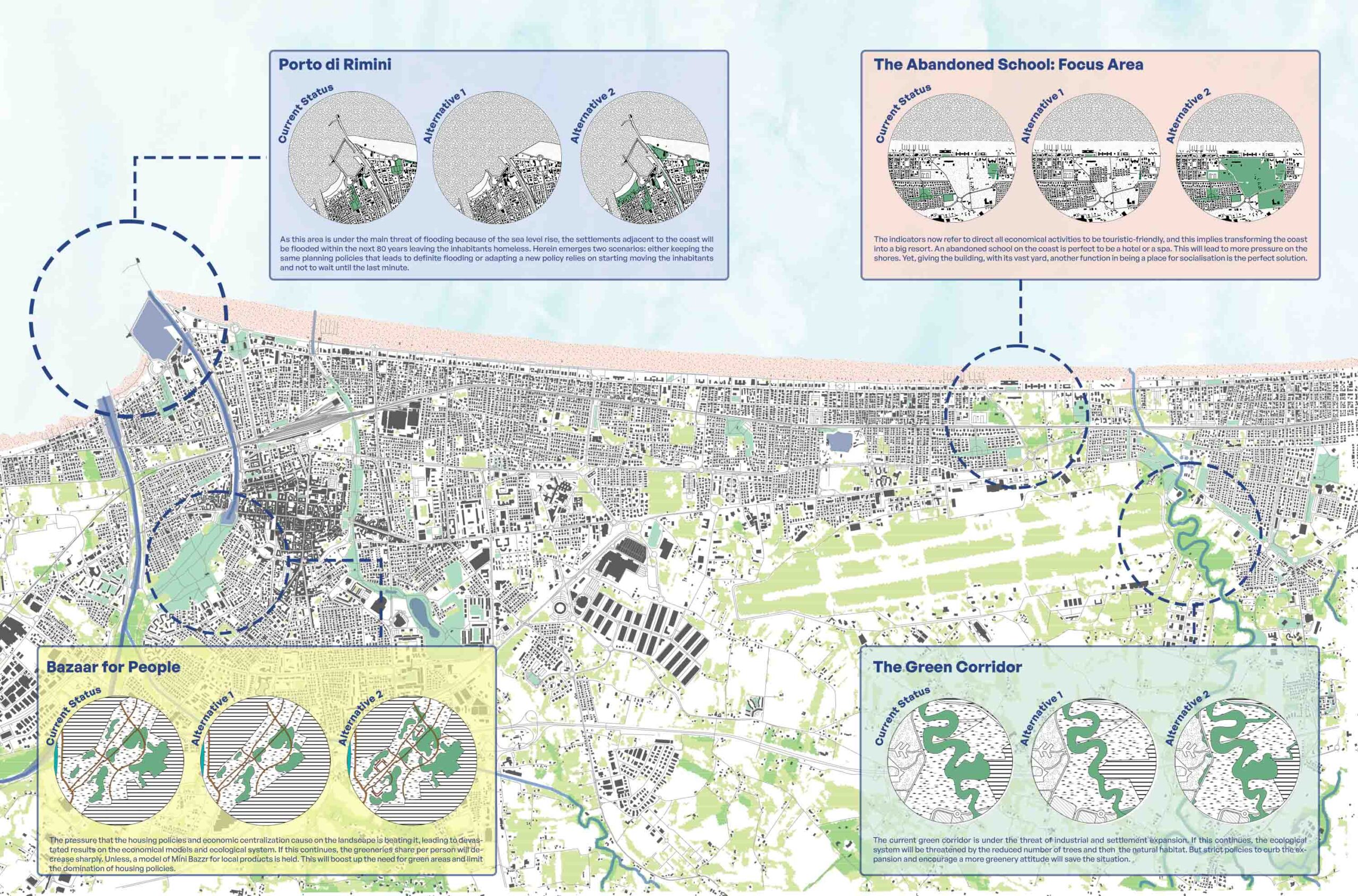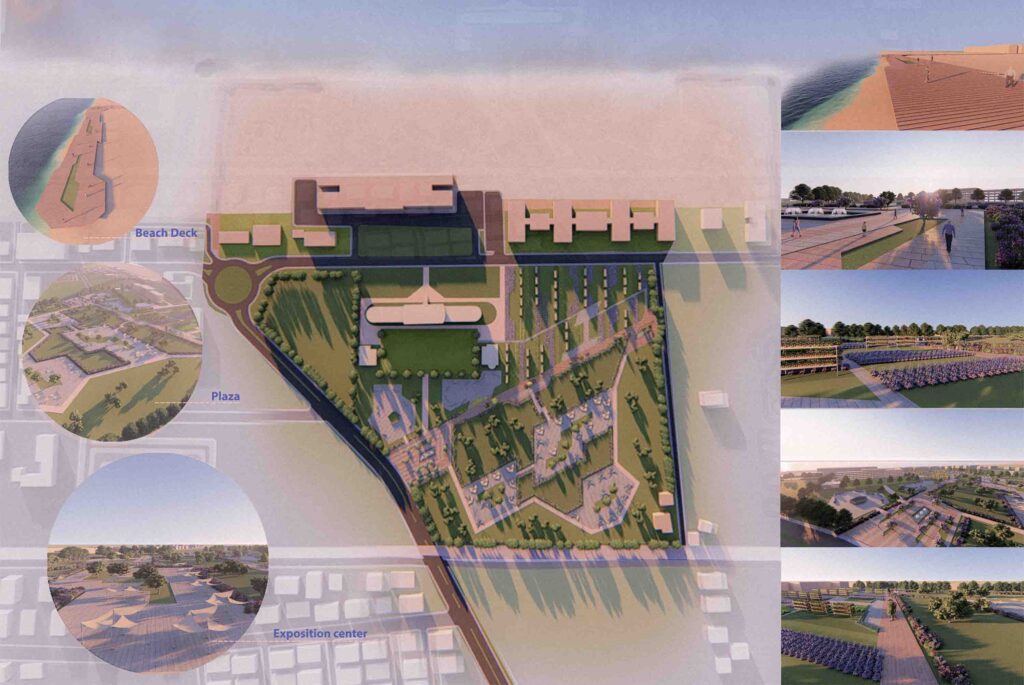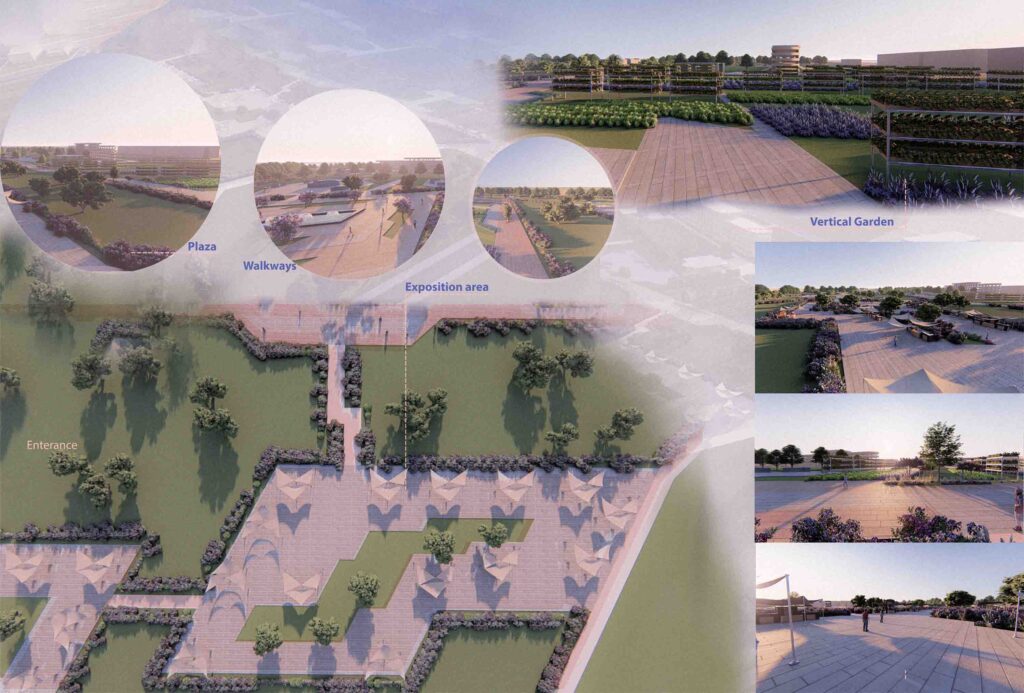Based on the ecological threats and what follows from evacuation and destruction of the old town and the mass tourism and its effects over the economy and the local life, the proposed concepts emerge.
Project team: Elif Naz Duman, Sana Vahdati, Pouria Malih, Osama Mahmoud Abdellatif Elhabyan, Ghieth Alkhateeb, Jose Leonardo Estrada-Arbelaez
Moreover, the centralization and seasonality of the economic models and what they result from exclusion of locals and ascending
irreversible pressure on the landscape, require solutions that guarantee the equilibrium between the demands of the daily activities and the well-being of the landscape.

Thus, the four proposals are provided; relocation of the threatened coastal settlement areas, local bazaar near the Marecchia river, reviving of the southern green corridor and rehabilitation of an abandoned school on the sea coast. The final one is chosen for more demonstration.

A land where an abandoned school, that is now used partially as a car parking
building, is located, is a subject of a dramatic but delicate modification that aims at
making a sustainable change in the area. First, the garden is redesigned to reflect
the inclusion of the different social groups, locals and foreigners, on the Rimini land.
Moreover, the garden contains different types of plants and trees, each one
representing a vegetation species, which will be an ecological habitat for insects and
birds. Second, there are corners for promoting the local products of Rimini and the
micro economic business models emerging from it. Lastly, the seasonality; the
garden creates and co-creates different atmospheres during the various times of the year reminding that Rimini is always vivid.

